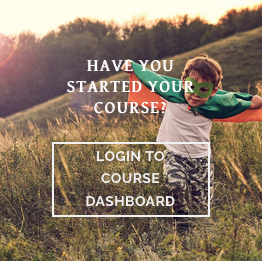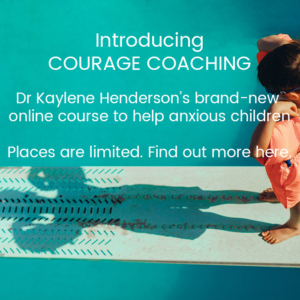The Science Behind the ‘Mummy/Mommy Wars’
 I’ve always found it interesting that there are so many different parenting ‘styles’. What I hadn’t anticipated before joining the ranks of parenthood myself several years ago was that many parents are not only advocates for their preferred ‘style’ but staunch defenders of what they perceive to be the ‘only right way’. Drawn to Child Psychiatry in my professional life, I have always been naturally curious and open-minded about others’ opinions and choices, so I was completely thrown by how defensive and at times judgemental parents could be towards one another. Surely we were all striving towards the same goal of raising decent human beings?
I’ve always found it interesting that there are so many different parenting ‘styles’. What I hadn’t anticipated before joining the ranks of parenthood myself several years ago was that many parents are not only advocates for their preferred ‘style’ but staunch defenders of what they perceive to be the ‘only right way’. Drawn to Child Psychiatry in my professional life, I have always been naturally curious and open-minded about others’ opinions and choices, so I was completely thrown by how defensive and at times judgemental parents could be towards one another. Surely we were all striving towards the same goal of raising decent human beings?
And yet somewhere in another part of my new-parent-brain, (a part that was sharper, non-track-pants-wearing and untouched by baby vomit), I was able to recall what I suspect to be the underlying reason for the so-called ‘Mummy or Mommy wars’.
(Now bear with me but first I’llneed to explain a little bit of technical brain stuff…)
You see, we all have different types of memories which are encoded in different parts of our brains. The types of memories that most people think about when they consider memory are autobiographical memories – these are memories of events and experiences that are connected to a narrative, for example, the memory of how you met your partner or your favourite travel adventure story. But another type of memory which is very important in parenting is procedural memory. Procedural memory is the memory of how we do things, like how we ride a bike or drive a car. Our procedural memories save us from having to consciously recall how to perform these tasks each time we have to do them – we can just operate on ‘autopilot’. Well it turns out that our memories which inform how we parent are stored as procedural memories too. Even as infants, we are storing procedural memories about how to parent, based on how we are being parented. This is why, unless we consciously do things differently, our parenting ‘autopilot’ will be the same as that of our parents (and their parents and theirs…you get the idea).
A parent who feels irritated with their child whenever he or she is having an emotional meltdown most likely experienced the same response from their parent when they were young. And that child will most likely respond in the same way with their own kids one day – because that’s just ‘how you do it’ – it’s like riding a bike.
Have you ever been in a situation with your child and had some other parent give you ‘the look’? You know the one – made up of one part disbelief, one part disapproval and the last part made up of all the other words you can think of that start with ‘dis’? Now imagine that the same person witnesses you trying to ride your bike while in a rear-facing position with your head resting back on the handlebars … I imagine you’d get much the same look (with a similar amount of ‘dissing’).
Parents are at times judgemental and defensive about parenting because they look at others parenting differently and it’s as if they’re watching someone performing a familiar task, well…all wrong! It’s just not ‘how you do it’ because what they’re witnessing doesn’t fit with their procedural memories of parenting.
So maybe that’s it. Maybe the so-called Mummy/Mommy wars really relate to the diversity found amongst our collective memories. Does this solve the issue? No, sadly not. But it might help us understand each other a little better and perhaps promote a bit of tolerance and empathy between us.
And surely that’s a cause more worthy of a fight.
Dr Kaylene Henderson is passionate about sharing practical, research based advice to help you feel more calm and confident while raising kind, resilient and socially and emotionally healthy children.
And here for the corresponding course series for early childhood professionals, Raising Good Kids: Managing Behaviour and Emotions in Early Childhood Care and Education Settings.



